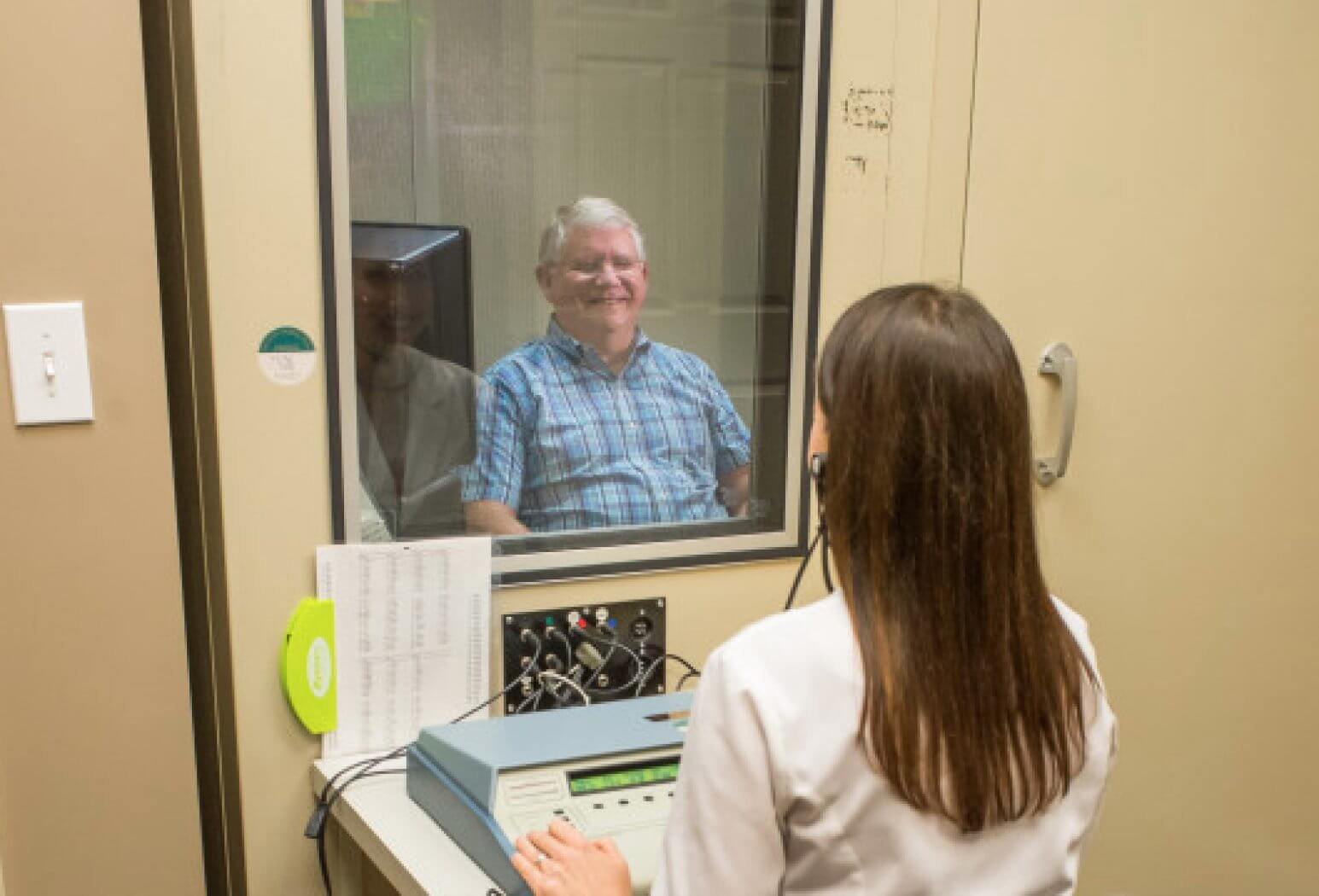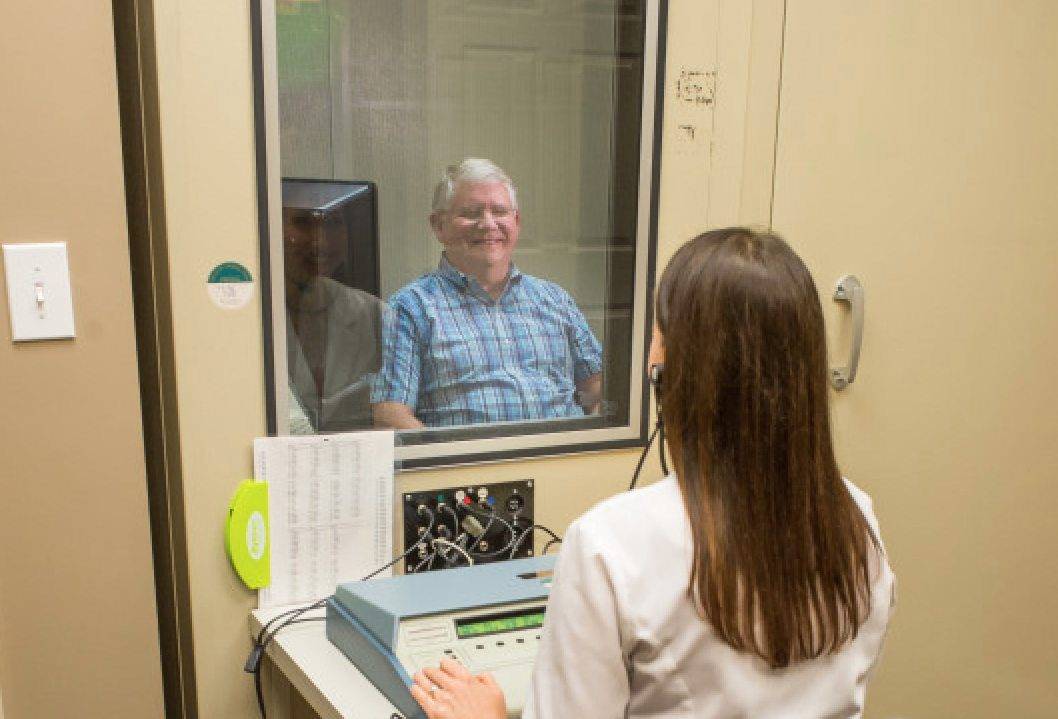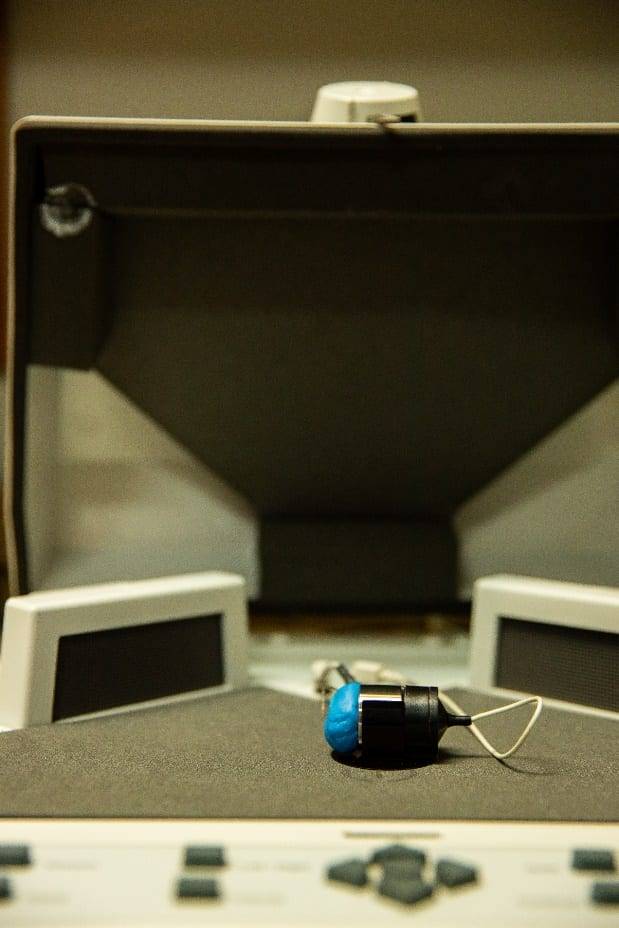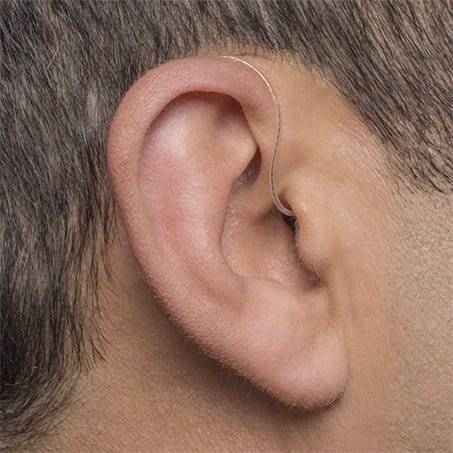While your ears collect sound, your brain is what interprets it into meaningful speech. In other words, you hear with your ears but you listen with your brain. This is the primary concept behind a functional hearing assessment.
There is increasing evidence that links age-related hearing loss with an accelerated progression of cognitive decline and a decrease in brain volume. Long-term hearing deprivation can affect cognitive performance by decreasing the quality of communication with others.
That’s why we use Cognivue® as an integral part of our Connect 365” Functional Hearing Assessment
What does the Cognivue® evaluate?
Cognivue® evaluates three cognitive domains (memory, visuospatial, and executive function) and two parameters (processing speed and reaction time) that heavily influence hearing in everyday listening environments.
For more specifics on the Cognivue® domains and parameters, read below:
- Memory: As hearing loss becomes more severe, your risk of not storing information properly increases, making it more difficult to retrieve information. On the other side of this, someone’s ability to remember decreases if trying to remember a degraded signal (such as what happens when someone hears through a hearing loss).
- Visuospatial: Visuospatial capabilities are important for localization, whether it’s a dog barking or if you’re moving around a room. A decrease in visuospatial functioning in addition to untreated hearing loss increases your risk of falling—BUT the research shows us that correcting your hearing loss reduces your risk of falling.
- Executive Function: Executive Function impacts your ability to hear in noisy environments. People with impairment in executive function tend to have more difficulty in situations with multiple speakers than in environments with non-speech noise (such as wind or road noise).
- Processing Speed: Processing Speed impacts your ability to efficiently use your executive functioning. For people with an impairment in processing speed, it may take a bit longer to process conversational speech in noise and someone may be more likely to stop paying attention if the listening environment is very difficult.
- Reaction Time: Reaction Time impacts your ability to follow rapid conversation and follow multiple talkers, as well as your ability to respond quickly to questions and comments.
Functional Hearing Assessment in Alabama
At Alabama Hearing Associates, we take pride in offering the most advanced hearing solutions to our patients. To know more about Cognivue and our functional hearing assessment process, give us a call or schedule an appointment today!
Interested in learning more? Click here to watch a video about Cognivue.












